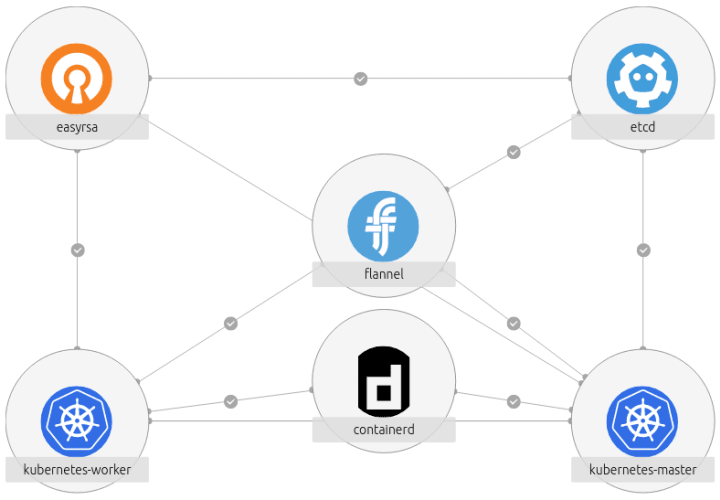Kubernetes storage options: StorageOS
Peter Jose De Sousa
on 24 October 2019
Tags: Charmed Kubernetes , Storage , StorageOS
Kubernetes offers a range of storage solutions out of the box, but the majority of these are specific to cloud providers, for example, AWS or Google Cloud. This means that the options left for bare metal deployments are Ceph, NFS or local.
“StorageOS is a newcomer to this area providing an easy to setup solution for storage in Charmed Kubernetes.” – said Tytus Kurek, Product Manager for Charmed Kubernetes at Canonical.
In this tutorial, you will learn how to deploy StorageOS operator in Charmed Kubernetes environment. We will also create an example workload that uses StorageOS based on WordPress and MySQL.
Prerequisites
Before we get started, we have to find ourselves a healthy Charmed Kubernetes cluster. If you do not have a Charmed Kubernetes cluster, you can refer to the following tutorial to spin up one in minutes. Charmed Kubernetes is a production-grade Kubernetes offering from Canonical which is fully compliant with the upstream project. Get Charmed Kubernetes right away and benefit from simplified deployments and operations provided by Juju charms.

How to deploy StorageOS
Deploying StorageOS in Charmed Kubernetes environment involves completing the following steps:
- Install the StorageOS operator – deploy the StorageOS operator from GitHub
- Create a secret for StorageOS – create an initial StorageOS user account
- Deploy the daemon sets – deploy the StorageOS cluster.
Once completed, you can use StorageOS when creating persistent volume claims in Kubernetes.
As the whole process requires a bunch of manual steps, we decided to create a detailed tutorial that you can follow step-by-step to understand how to deploy StorageOS in Charmed Kubernetes environment.
Conclusions
Using StorageOS allows you to easily set up a storage solution for Charmed Kubernetes which can be used in bare metal deployments. You can check out StorageOS’ documentation on how to take your newly learned skills and apply them to your Kubernetes clusters.
Multi-cloud Kubernetes on Ubuntu
Deploy, scale and upgrade Kubernetes clusters across multiple physical or virtual machines with Charmed Kubernetes, with full support available.
Newsletter signup
Related posts
Canonical announces 12 year Kubernetes LTS
Canonical’s Kubernetes LTS (Long Term Support) will support FedRAMP compliance and receive at least 12 years of committed security maintenance and enterprise...
How to reduce data storage costs by up to 50% with Ceph
Canonical Ceph with IntelⓇ Quick Assist Technology (QAT) In our last blog post we talked about how you can use Intel® QAT with Canonical Ceph, today we’ll...
How to utilize CPU offloads to increase storage efficiency
Canonical Ceph with IntelⓇ Quick Assist Technology (QAT) When storing large amounts of data, the cost ($) to store each gigabyte (GB) is the typical measure...
